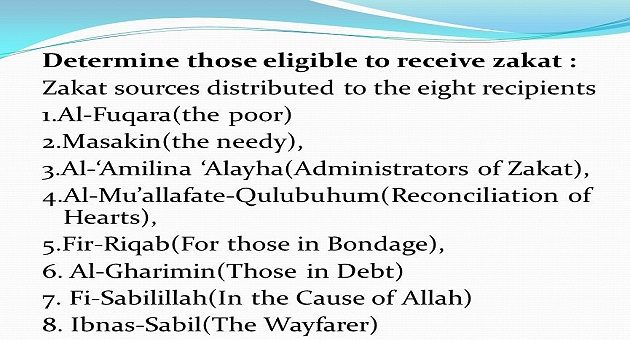
Providing for philanthropy is one of the five “pillars” of Islam. Muslims who have riches staying toward the part of the arrangement after paying for their very own essential needs are required to pay a specific rate to help other people. This routine with regards to almsgiving is called Zakat, from an Arabic word which means both “to purify” and “to grow.” Muslims accept that providing for others cleans their very own riches, expands its worth, and makes one perceive that all that we have is a trust from God. Paying Zakat is expected of each grown-up Muslim man or lady who has an abundance of a specific least sum.
Zakat is just expected of the individuals who have riches past a specific add up to meet their fundamental needs (called Nisaab in Arabic). The measure of cash paid in Zakat relies upon the sum and kind of riches one has, yet it is typically viewed as at least 2.5% of an individual’s “extra” riches. The particular computations of Zakat are reasonably pointed by point and subject to singular conditions, so zakat number crunchers have been created to help with the procedure.
- Poor People Who have few belongings
- Destitute or Needy People
- The collectors of zakat who collect and distribute Zakat
- Muslim Converts
- Slaves
- Debtors
- Travelers
- Those who work in the Path of ALLAH
Zakat is a central pillar of Islam like Hajj or sawm, but there are also other good deeds like Umrah. Many Muslims get Cheapest Umrah Visa from Dubai and take Umrah Package by bus from Dubai and go to Makkah to perform their Umrah.












No Comments